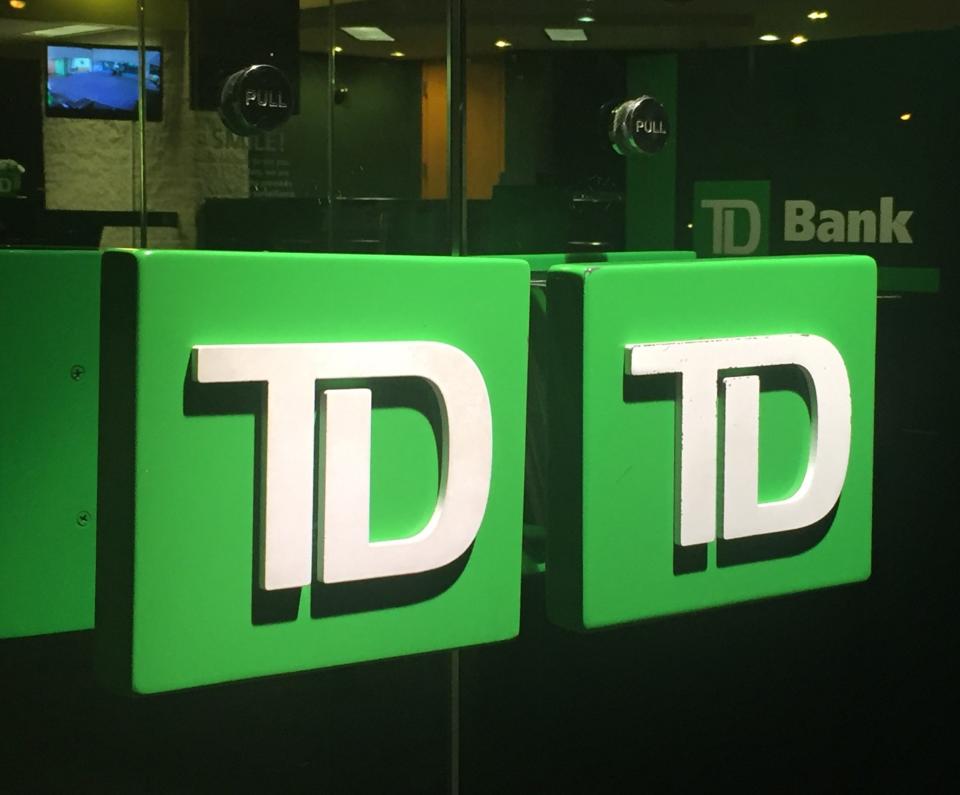TD Bank still feeling financial pain from Florida man's $1.2 billion Ponzi scheme
CAMDEN – When a Florida man conducted a massive Ponzi scheme more than a decade ago, he took his victims for an estimated $1.2 billion.
But the scam could be almost as costly for TD Bank, which is still feeling the financial repercussions of its former customer’s scheme.
The Cherry Hill-based bank has made restitution of more than $600 million to investors duped by Scott Rothstein, a Fort Lauderdale lawyer now serving a 50-year prison term.
TD Bank stung by Ponzi scheme in Florida
It also paid civil penalties of $52.5 million in connection with its failure to detect the scam by Rothstein, whose law firm had multiple accounts with TD Bank.
And now the bank is fighting over liability for more than $495 million from the Rothstein case, including legal expenses and settlement costs tied to the scam.
More: New life for former bank? Old Wells Fargo property gets support for redevelopment treatment in Haddon
It’s suing nine insurers that have refused to cover as much as $90 million of that exposure.
"TD has filed a complaint against its Directors & Officers insurance carriers regarding the Rothstein matter because it believes the carriers improperly denied insurance coverage,” the bank said in a statement.

“We look forward to this matter being heard by the court and jury," it said.
TD Bank found itself enmeshed in the Ponzi scheme after acquiring the parent firm of Commerce Bank N.A. of Cherry Hill in May 2008.
Authorities say Rothstein’s scam began in 2005 and that he opened attorney trust accounts at a Commerce office in November 2007 “to give the appearance of legitimacy and security.”
Regulators fault TD Bank's response to Ponzi scheme
According to a federal regulator, TD Bank from April 2008 to September 2009 “failed to file suspicious activity reports” for accounts belonging to Rothstein’s law firm.
The Office of the Comptroller of the Currency called those failures “significant and egregious” when it announced a civil penalty of $37.5 million in September 2013.
It cited “the number of alerts generated by these accounts and the volume and velocity of funds that flowed through them.”
Another regulator, the Financial Crimes Enforcement Network, asserted TD Bank’s “policies, procedures, and training regarding (attorney trust accounts during the scam) were inadequate.”
And the Securities and Exchange Commission, which collected a $15 million civil penalty in September 2013, alleged Rothstein was helped by an executive who worked for both Commerce and TD Bank.
TD Bank executive received prison term
Frank Spinosa, a regional vice president in South Florida, later received a 30-month prison term for conspiracy to commit wire fraud.
The SEC alleged Spinosa produced misleading records and made false statements about Rothstein’s accounts.
During an August 2009 conference call with Rothstein and representatives of an investor group, the SEC noted, Spinosa said an account held $22 million — “the amount the investor was expecting to hear.”
“Spinosa had full access to the account information to know the actual account balance was no more than $100,” the SEC alleged.
One month later, as the scam was unraveling, "Spinosa met with the same group after it made additional investments with Rothstein, and falsely assured the investors that their money was safe,” the SEC statement continued.
SEC: Scott Rothstein Ponzi scam based on phony settlements
According to the SEC, Rothstein’s scam was based on false claims that some of his clients had won confidential settlements, payable over time, through whistleblower or sex-harassment complaints against large corporations.
Rothstein, whose firm employed some 70 lawyers, said his clients would sell the settlements to investors at a discount in exchange for an immediate lump-sum payment. The investors then could expect a guaranteed return for the duration of the settlements.

Rothstein told investors that the settlement amounts had been deposited in attorney trust accounts at Commerce Bank, then at TD Bank.
“The legal settlements were fake and the plaintiffs and defendants were not real,” the SEC noted.
Rothstein, who pleaded guilty to racketeering conspiracy in 2010, used the money of later victims to pay earlier victims, creating the illusion of a successful investment.
He also tapped the victims’ funds for a lavish lifestyle, according to the SEC.
TD Bank agreed to the civil penalties under consent orders that resolved charges from the federal regulators. It neither admitted nor denied the allegations.
TD Bank's lawsuit contends the insurers must cover, "among other things, defense costs, settlements and court judgments" that the bank incurrred due to "wrongful acts" by directors and officers.
It notes "numerous" lawsuits were brought against TD Bank due to the Ponzi scheme and that seven suits were filed against Spinosa and a TD branch manager, Rosanne Caretsky.
TD Bank agreed to pay defense costs for Spinosa and Caretsky, and to cover the expense of settling the suits.
TD sued its insurers in state court on April 4, after an attempt at mediation did not resolve the dispute.
The breach-of-contract case was then moved to Camden federal court at the request of Axis Insurance Co. of Georgia.
Gerald T. Ford, a Newark attorney representing Axis, declined to comment. His filing said the other insurers had not yet been served with the suit.
Jim Walsh is a senior reporter with the Courier-Post, Burlington County Times and The Daily Journal.
This article originally appeared on Cherry Hill Courier-Post: TD Bank of Cherry Hill still feels impact of Florida man's Ponzi scam

